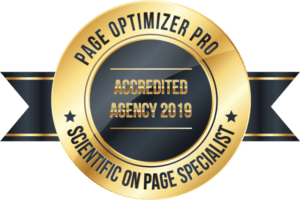
Understanding the Importance of Keyword Research
Keyword research forms the cornerstone of any successful SEO strategy. It involves identifying the words and phrases that your target audience uses to search for information, products, or services related to your industry. By understanding the importance of keyword research, you can align your website’s content and optimize it for maximum visibility and relevance.
Why Keyword Research Matters:
- Targeting User Intent:
Keyword research enables you to decipher the intent behind user searches. By understanding your target audience’s specific queries and needs, you can create content that directly addresses their interests, pain points, and desires. - Enhancing Website Visibility:
By incorporating relevant keywords throughout your website’s content, meta tags, headings, and URLs, you increase the chances of search engines recognizing your site as a valuable resource for specific search queries. This, in turn, boosts your visibility in search engine results pages (SERPs).
Effective Strategies for Keyword Research:
- Defining Your Goals:
Begin by clearly defining your SEO goals and objectives. Determine your target audience, geographical reach, and specific products or services you want to focus on. This will guide your keyword research efforts and help you prioritize the most relevant keywords. - Brainstorming Seed Keywords:
Create a list of seed keywords directly related to your business, industry, or niche. These keywords will serve as a starting point for expanding your research and discovering more specific and long-tail variations. - Utilizing Keyword Research Tools:
To gather data and insights, leverage powerful keyword research tools such as Google Keyword Planner, SEMrush, Ahrefs, or Moz Keyword Explorer. These tools provide valuable information such as search volume, competition, and keyword suggestions to refine your selection. - Analyzing Competitor Keywords:
Analyze the keywords your competitors target to gain insights into their SEO strategies. Identify opportunities where you can differentiate and find unique keywords to target. - Assessing Keyword Relevance and Search Volume:
Evaluate the relevance and search volume of potential keywords. Focus on keywords with sufficient search volume and lower competition to increase your chances of ranking higher in search results. - Considering Long-Tail Keywords:
Long-tail keywords are more specific and targeted phrases with lower search volume but higher intent and conversion potential. Incorporating long-tail keywords lets you capture highly relevant traffic and attract users closer to purchasing. - Organizing Keywords:
Organize your keywords into logical groups or themes. This helps you create focused content that targets specific topics or subtopics, improves the user experience, and signals to search engines your expertise in those areas. - Monitoring and Refining:
Keyword research is an ongoing process. Continuously monitor the performance of your chosen keywords, adapt to changes in search trends, and refine your keyword strategy based on data-driven insights.
Partner with Salterra for Keyword Research Excellence:
At Salterra, we understand the critical role of keyword research in driving successful SEO campaigns. Our SEO experts conduct thorough keyword research to identify the most effective keywords for your industry, ensuring your website is optimized to attract the right audience and achieve optimal search engine rankings.
Maximize Your Website’s Potential with Strategic Keyword Research:
With Salterra’s comprehensive guide to keyword research, you gain the knowledge and tools to unlock your website’s true potential. By mastering the art of keyword research, you can elevate your online presence, attract targeted traffic, and convert visitors into loyal customers. Let Salterra be your trusted partner in navigating the dynamic landscape of keyword research.
Keyword Research for Local Businesses: Attracting Customers in Your Neighborhood
Keyword research plays a vital role in the success of any local business’s online presence. By understanding the significance of local keyword research, you can align your website’s content, optimize it for local search, and attract customers actively searching for products or services within your specific geographical area.
Why Local Keyword Research Matters:
- Targeting Local Customers:
Local keyword research allows you to focus on the specific keywords and phrases your target audience in your area uses to find businesses like yours. Understanding their search intent allows you to tailor your content to meet their needs and position your business as a relevant and trustworthy local solution. - Increasing Local Visibility:
Incorporating locally relevant keywords throughout your website’s content, meta tags, headings, and URLs enhances your chances of appearing in local search results. This increased visibility helps potential customers find your business when they search for specific products or services in your area.
Effective Strategies for Local Keyword Research:
- Understanding Local Search Intent:
Gain insights into the search intent of your local audience. Understand the specific queries they use when searching for local businesses and the language they use to describe their needs. This knowledge will help you create content that directly addresses their requirements. - Defining Your Local Area:
Clearly define the geographic area you want to target. Identify the cities, towns, neighborhoods, or regions where you want to attract customers. This will guide your keyword research and ensure that your content aligns with the local audience you want to reach. - Leveraging Localized Keywords:
Incorporate localized keywords that include your location and specific phrases related to your business. For example, if you run a bakery in Phoenix, Arizona, target keywords like “best bakery in Phoenix” or “Phoenix bakery near me.” These keywords help you attract customers specifically looking for businesses in your area. - Analyzing Local Competitors:
Analyze the keywords your local competitors are targeting. This research will give you insights into the keywords driving traffic and conversions for similar businesses in your area. Identify opportunities to differentiate and find unique keywords to target. - Utilizing Local Keyword Research Tools:
Leverage local keyword research tools such as Google Trends, Google Keyword Planner, or local SEO software like Moz Local or BrightLocal. These tools provide valuable data on local search trends, search volume, and competition, enabling you to refine your keyword selection. - Incorporating Location-Specific Content:
Create location-specific content that caters to the interests and needs of your local audience. Highlight local landmarks, events, or attractions relevant to your business. This helps establish your business as a trusted and authoritative local resource. - Monitoring and Adapting:
Regularly monitor the performance of your chosen keywords and adapt to changes in local search trends. Refine your keyword strategy based on data-driven insights to ensure continued success in attracting local customers.
Partner with Salterra for Local Keyword Research Excellence:
At Salterra, we understand the critical role of local keyword research in driving successful local SEO campaigns. Our team of experts conducts thorough research to identify the most effective local keywords for your industry and location, ensuring your website is optimized to attract the right local audience and achieve optimal search engine rankings.
Maximize Your Local Business’s Potential with Strategic Keyword Research:
With Salterra’s comprehensive guide to keyword research for local businesses, you gain the knowledge and tools to unlock the true potential of your online presence. By mastering the art of local keyword research, you can elevate your local visibility, attract targeted local traffic, and convert visitors into loyal customers. Let Salterra be your trusted partner in navigating the dynamic landscape of local keyword research.
Keyword Research Guides and Tips
Do Keywords Still Matter for SEO in 2022?
Ok, so it’s 2022, and Search Engine Optimization is as important [...]







